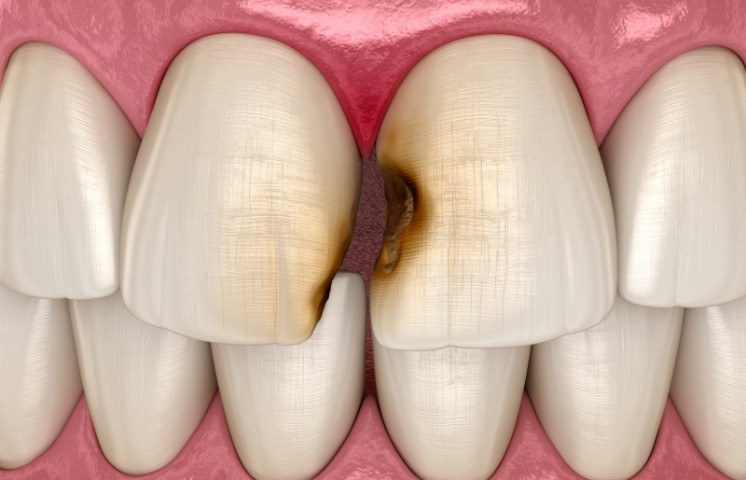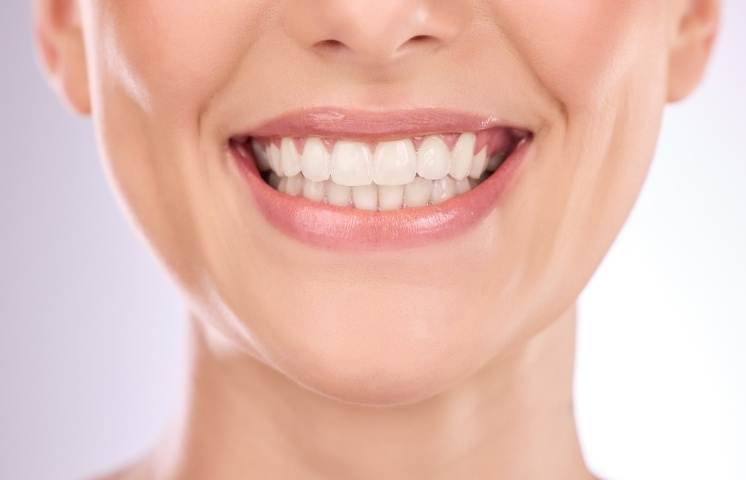We are not a registered Medicare/Medicaid Provider

Oral health plays a vital role in your overall well-being. Strong, healthy teeth help you chew, speak, and smile confidently. Yet, many people unknowingly damage their teeth through daily habits and lifestyle choices. Understanding these causes is crucial for effective prevention and long-lasting dental health. A professional dentist specializes in helping patients maintain healthy smiles. They offer personalized care to address every dental need.
Whether it’s preventing cavities or repairing damage, they can help. This guide highlights the most common causes of tooth damage and offers tips to protect your teeth.
The Major Causes of Tooth Damage
A. Poor Oral Hygiene
One of the most common causes of tooth damage is poor oral hygiene. When you neglect regular brushing and flossing, plaque accumulates on your teeth. Plaque is a sticky, colorless film of bacteria that forms after eating or drinking.
Over time, this plaque hardens into tartar, which cannot be removed with brushing alone. Plague and tartar lead to cavities, gum disease, and other dental issues. Without proper cleaning, harmful bacteria thrive in your mouth, attacking enamel and causing irreversible damage.
Regular brushing and flossing are essential to keep your teeth healthy and prevent cavities and gum disease.
B. Sugary and Acidic Foods and Drinks
What you eat plays a significant role in your dental health. Sugary foods like candy, pastries, and sodas provide fuel for harmful bacteria in your mouth. These bacteria break down sugar into acids that erode tooth enamel—the protective outer layer of your teeth. When enamel wears away, it exposes the softer dentin underneath, leading to tooth decay and sensitivity.
Acidic foods and drinks, such as citrus fruits, coffee, and sodas, also contribute to enamel erosion. The acid in these beverages weakens the enamel, making it more prone to decay.
Drinking sugary and acidic drinks in moderation and rinsing your mouth with water afterward can help protect your teeth. Avoid sipping sugary or acidic drinks throughout the day, as constant exposure increases the risk of enamel damage.
C. Teeth Grinding (Bruxism)
Teeth grinding, or bruxism is another major cause of tooth damage. Many people grind their teeth at night due to stress, anxiety, or misaligned teeth. Bruxism can result in worn-down enamel, cracks, and fractures in teeth. Constant grinding also puts unnecessary pressure on your jaw, leading to painful conditions like temporomandibular joint (TMJ) disorders.
If left untreated, bruxism can cause significant damage to your teeth, including chipped or broken teeth and severe tooth wear. Wearing a mouthguard at night, reducing stress, and seeking professional treatment for misaligned teeth can help protect your teeth from the harmful effects of grinding.
D. Tobacco Use
Smoking and chewing tobacco stains teeth and significantly harms your gums and oral health. The chemicals in tobacco products restrict blood flow to your gums, leading to gum disease, which can cause tooth loss. Smoking is also strongly linked to oral cancer and can severely affect the healing process after dental procedures.
Chewing tobacco poses a particular risk, as it leads to chronic gum irritation and tooth decay, especially around the areas where the tobacco is held in the mouth. Quitting tobacco use is one of the most important steps you can take to protect your teeth and gums.
Additionally, routine dental visits will help identify early signs of tobacco-related damage, such as gum recession or discoloration.
E. Physical Trauma
Physical trauma to the teeth is another common cause of damage. Whether from a sports injury, an accident, or simply biting down on something too hard, your teeth can be easily chipped, cracked, or fractured. Biting down on hard foods or objects like ice, pens, or fingernails can also cause damage to your teeth over time.
Wearing protective gear, such as mouthguards, while participating in sports can prevent significant damage to your teeth. Athletes in contact sports need to protect their teeth from injury. If you experience an injury to your teeth, it’s essential to seek immediate dental care to prevent further damage and maintain your oral health.
F. Medical Conditions
Certain medical conditions can make your teeth more susceptible to damage. For example, diabetes can affect the health of your gums and increase the risk of infection. Conditions that cause dry mouth, such as Sjögren’s syndrome or as a side effect of medication, can also lead to tooth damage.
Saliva is crucial for neutralizing acids in the mouth and washing away food particles. When you experience dry mouth, you are at an increased risk of cavities and gum disease.
Moreover, some medications can cause a decrease in saliva production, leading to dry mouth. If you have a medical condition that affects your oral health, it’s important to talk to your dentist in Haymarket. They can recommend treatments to help manage your condition and prevent further damage to your teeth.
How to Protect Your Teeth?
A. Maintain a Strong Oral Hygiene Routine
- Brush twice daily with fluoride toothpaste for two minutes each time.
- Floss once a day to remove plaque between teeth.
- Visit your dentist every six months for cleanings and check-ups.
B. Adopt a Tooth-Friendly Diet
- Eat calcium-rich foods like dairy, leafy greens, and almonds to strengthen enamel.
- Choose crunchy fruits and vegetables to stimulate saliva production.
- Limit sugary and acidic foods and drinks to protect enamel from erosion.
C. Preventative Measures
- Use fluoride treatments to strengthen teeth and prevent cavities.
- Ask your dentist about dental sealants for extra protection on molars.
- Wear a mouthguard during sports or at night to prevent grinding damage.
D. Quit Harmful Habits
- Replace smoking or chewing tobacco with healthier alternatives.
- Practice stress management techniques to reduce grinding and clenching.
- Avoid chewing on ice, pens, or other hard objects that can chip teeth.
Professional Dental Advice
When to Seek Immediate Dental Care?
- See your dentist immediately for severe pain, swelling, or a knocked-out tooth.
- If a tooth chips, rinse your mouth and save any broken pieces for your dentist.
What to Expect During a Dental Check-Up?
- Your dentist examines your teeth and gums for any issues.
- X-rays help detect hidden cavities or bone loss.
- Professional cleaning removes plaque and tartar that regular brushing misses.
Caring for your teeth is essential for maintaining a healthy, confident smile. By avoiding common causes of tooth damage and adopting preventative habits, you can keep your teeth strong. Regular dental check-ups are key in identifying problems early and preventing long-term damage.
Haymarket dentists are committed to helping you achieve optimal oral health. Schedule an appointment today for a personalized consultation. Let’s work together to protect your smile!



